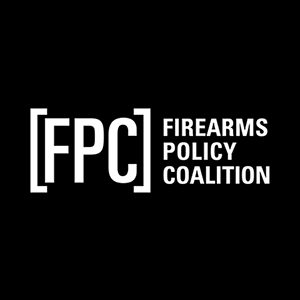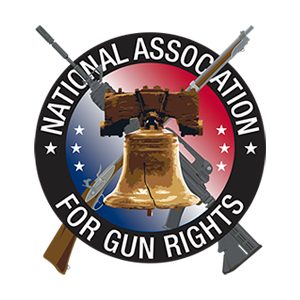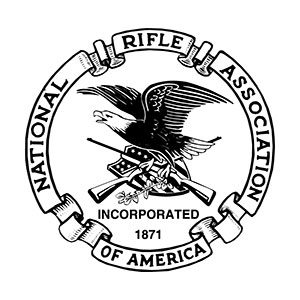
Firearms ownership comes with immense responsibility, especially when you are with the folks you care the most about, your family. In states like mine, New Jersey, where gun laws are among the strictest in the country, it is essential that families of gun owners take firearm safety seriously, not just in legal compliance but as a matter of protecting loved ones. As a firearms instructor, I’ve worked with many families who want to be both safe and prepared. This article will explore key general topics including proper storage, child safety, outdoor activities, and carrying considerations when out with your family.
Safe firearm storage is the foundation of responsible gun ownership. In New Jersey, it is unlawful to leave a loaded firearm accessible to a minor, and failure to secure your weapons can result in criminal charges, even if no harm occurs. I recommend using a gun safe or lockbox that is either biometric or requires a digital combination. Separate firearms from your ammunition, store each in different secure locations. Utilize cable locks for additional layers of protection when not using a safe and conduct regular checks to ensure locks are functional and that unauthorized persons do not have access.
Educate all family members that firearms are not toys. I often think of how water guns and nerf style guns I used as a child were so similar to the operation of true firearms, the more realistic, the cooler to a kid. With so much access now to information, curious children will learn ways to accomplish tasks. Even if your children are not old enough to understand how guns work, they can be taught to stay away and alert an adult if they find one. As a parent, you must decide what your child should know based on their maturity and your lifestyle. Children who are educated about firearms under supervision often exhibit greater respect and caution.
Start with the four universal basic firearm safety rules, they can be adapted for children:
- Treat all guns as if they are loaded.
- Never point a gun at anything you don’t intend to shoot.
- Keep your finger off the trigger until ready to shoot.
- Be sure of your target and what is beyond it.
If your child is old enough and shows interest, enroll them in a youth firearms safety course. Discuss consequences and use real-world examples to illustrate why mishandling firearms is dangerous. Practice supervised handling, if you choose to allow your child to handle firearms, do it under controlled and professional instruction. In my classes, parents who involve their children in safe, supervised learning often develop stronger safety habits themselves. It’s a family culture.
Now that we are heading into warmer weather, when integrating firearms with outdoor activities, whether it’s hiking, camping, or range trips, families that enjoy the outdoors may choose to carry a firearm for protection. In New Jersey, your options are limited without a carry permit, so understanding state and federal laws is essential.
While enjoying the outdoors, it’s extremely important to know the laws in your state. Carrying firearms in state parks, on federal lands, or even while transporting them to the range may have specific legal boundaries. They absolutely do in New Jersey. Use approved transport methods. Firearms must be unloaded, locked in a case, and stored separately from ammunition when in a vehicle unless you have a carry permit. Use proper holsters or cases if you are transporting firearms to an outdoor activity and invest in secure, durable carrying systems. Additionally, outdoor family trips are great opportunities to reinforce safety procedures and discuss real-life decision-making scenarios.
With so many people now having the right to carry, it’s important to stay up to date with your state’s carry guidelines. Carrying while with your family adds an extra level of responsibility. Situational awareness is critical. When you’re with family, particularly young children, your attention is divided. Your primary responsibility is their safety, not just from threats but from accidental exposure to your firearm. With warmer weather comes more revealing clothing, your shorts and t-shirts may compromise concealment. Use high-retention holsters and ensure your firearm cannot be easily accessed by others or jostled loose in crowded areas. Dress appropriately. Concealed carry means concealed, choose attire that covers your firearm effectively. Have a plan. If an incident occurs, where will your children go? Who will lead them to safety if you’re engaged? Families should discuss emergency action plans just like fire drills. Avoid conflict. While carrying, you must be the calmest person in the room. That means no arguments, road rage, or unnecessary confrontations. Realize that everything you get involved in now also includes your firearm. Carrying a firearm in public is not about ego, it’s about preparation and deterrence. When done responsibly, it adds a layer of security for your family, not a risk.
With all this being said, let’s all remember the importance of proper training. There is so much that is taught during live-fire training that brings these thoughts and concepts into proper practice. When you do find yourself in a situation when you must react, it needs to be effective and justified.
Being a responsible gun-owning family means knowing and respecting the law, practicing secure storage, educating children, gaining the training needed, and understanding how to integrate firearms into your lifestyle safely. As a firearms instructor, I emphasize that safety is not a one-time conversation; it’s a continual practice. Start at home, teach your children with care, and always carry the weight of responsibility with the seriousness it deserves.



















Separate firearms from their ammunition and store in separate locations?? Defeats the purpose of home defense. I think you are quoting “safe storage law” that did not pass NJ, please recheck.